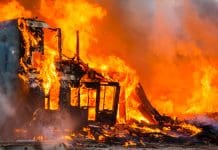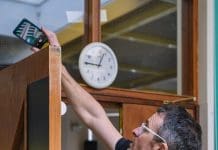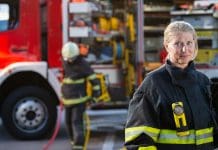With fire safety at the top of the agenda, PBC Today talks to LHC head of repairs and maintenance Colin Scoines about the development of a new framework designed to connect clients with suppliers who have the competencies and capabilities to ensure compliance
Dame Judith Hackitt’s independent review of Building Regulations and fire safety following the Grenfell Tower disaster raised serious questions about compliance with fire standards and the competence of those carrying out this vital work in buildings.
The system failed, she said, because of ignorance about regulations and guidance; indifference to safety set against a motivation to do things quickly and cheaply; a lack of clarity about roles and responsibilities; and inadequate oversight of regulations and enforcement action.
These issues combined to create a cultural problem across the construction industry, a “race to the bottom” where there was insufficient consideration given to delivering the best quality buildings and ensuring residents are safe during the building’s whole lifetime.
Dame Judith’s damning verdict has put fire safety front and centre, and ensuring compliance with standards is – as it always should have been – now firmly at the top of the agenda.
LHC frameworks
LHC, a not-for-profit central purchasing body that develops OJEU-compliant frameworks to bring buyers and suppliers together, as part of a compliance package that also covers legionella, asbestos and gas safety, has just launched its first fire safety framework.
The framework takes into account the conclusions of the Hackitt Review, as well as Paul Stollard’s Scottish consultation document and the interim guidance issued following Grenfell, to provide a suite of specialist fire safety services for domestic and non-domestic buildings.
It covers four categories:
- FS1-C: Fire Consultants, including Fire Risk Assessments.
With others to follow:
- FS1-P: Passive Fire Protection, including compartmentalisation and fire doors’ maintenance or replacement.
- FS1-S: Fire Suppressors, including sprinkler systems and portable extinguishers).
- FS1-D: Fire Detection, including alarm and lighting systems.
For Colin Scoines, LHC’s head of repairs and maintenance, the frameworks offer capable and competent suppliers, which helps their clients with managing the risks and their duty of care.
“We’ve always recognised that we need to meet a reasonable standard and not just the minimum legal requirement,” he tells PBC Today.
Assessing the impact of the Hackitt Review on LHC’s approach, Scoines says: “Dame Judith Hackitt’s report did not change our process. We’ve always written our specifications and tender documents to meet the industry best practice and specify minimum competency levels and not just the minimum standard.
Perhaps, if anything, it highlights to other people why we do it.
“This sometimes means other suppliers can cost less, but this may create a risk to the client.”
Commenting further on clients’ approaches to risk management, he continues: “Clients do not always have the resources and/or the knowledge to manage the risk of a supplier that may be able to provide a good standard but do not wish to demonstrate it through an accredited industry standard scheme. If something happens, the client has a responsibility in ensure the competency the those they have employed, why take that risk?”
Third-party accreditation
A cornerstone of LHC’s due diligence for suppliers looking to be appointed to its frameworks is third-party accreditation. UKAS is national accreditation body in UK. Its role is to assess whether conformity assessment organisations are capable of meeting a required standard of performance, as specified in international standards and/or industry schemes.
Explaining the value of UKAS accreditation to LHC when evaluating potential suppliers, Scoines says: “Third-party certification by a UKAS-accredited company demonstrates to us an independent review of a supplier’s capability to an industry-approved standard and, with some schemes, their technicians’ competences. This assists the evaluation process greatly and ensures consistency during the life of the framework. We do experience resistance on this approach, because suppliers will state it is often not a legal requirement, or they have a non-UKAS certification, but it’s not same.”
In the wake of the Hackitt Review, LHC has seen a change with enquiries from clients, who are now asking how they can ensure the competence of the person the supplier is sending?
“We only appoint suppliers who have demonstrated their capability through their skill, knowledge and experience and evidence that they have the capacity and competency to deliver services,” Scoines says.
“UKAS-accredited third-party certification is the fundamental part of generating this confidence for both LHC and our clients.
“Our Fire Safety Framework shall provide FRA, Alarm and Sprinkler suppliers that are registered to a BAFE scheme.”
Colin Scoines
Head of Repairs & Maintenance
Tel: +44 (0)1895 274800
Twitter: LHCprocurement
LinkenIn: LHC
YouTube: LHC

















